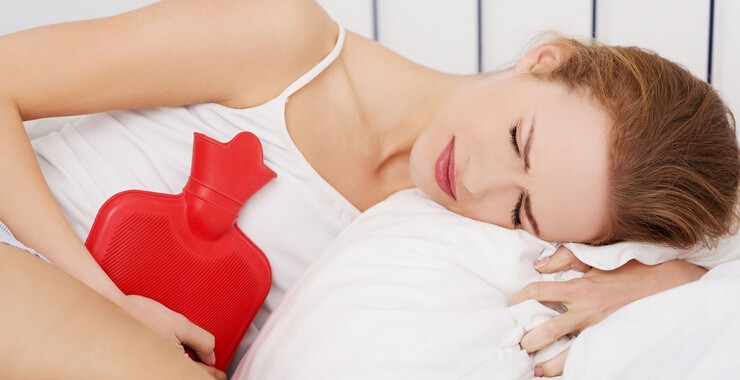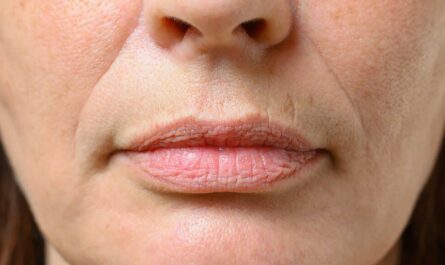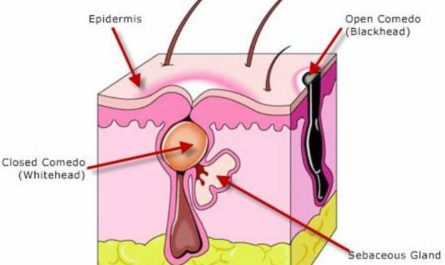Have you ever experienced an unusual smell emanating from the belly button? It’s a common problem for many people. This condition is often referred to as a smelly belly button. This condition can be embarrassing and uncomfortable, but the good news is that it’s relatively easy to treat.
In this article, we’ll discuss the causes of the smelly belly button, ways to prevent it from occurring, and the best treatments to eliminate the odor. If you’re ready to tackle your smelly belly button, let’s get started!
What is a Belly Button?
The belly button is the only visible scar on the body after birth. A few days after the baby was born, the rest of a small piece of meat fell off, only the navel, also called the umbilicus.
There are two forms of navels: hollow navels and convex navels. The hollow navel is a cavity; it is more likely to have a bad smell than the convex navel.
This part of the body is warm and damp. Dirt, lint, bacteria, sweat, and other germs can build up in your belly button. According to the study, more than 67 bacteria are in the navel.

Common Symptoms of Smelly Belly Button
It is important to pay attention to the symptoms of a smelly belly button, as it can be a sign of an underlying infection or condition.
1. Malodorous smell
The malodorous smell is one of the most common symptoms of a smelly belly button. This smell is usually caused by bacteria growing in the belly button and releasing a foul odor.
Additionally, the smell can be intensified by sweat and trapped dirt and oils that have accumulated in the belly button over time.
2. Itching
Another common symptom of a smelly belly button is itching. The itching is usually caused by an infection, such as a yeast infection or bacterial infection.
Additionally, the itching can be caused by an accumulation of sweat and dirt in the belly button. If the itching is severe, it is recommended to seek medical attention.
3. Discharge
Finally, discharge from the belly button is a common symptom of a smelly belly button. The discharge can be clear or yellowish in color and can have a foul odor.
In some cases, the discharge can also be accompanied by itching or redness. If the discharge is severe or accompanied by other symptoms, it is recommended to seek medical attention.
10 Common Causes of Smelly Belly Button
Here are 10 common causes of a smelly belly button.
1. Yeast or Fungal infections

Yeast infection, also called fungal infection, often affects adolescents and children. When exposed to a mother’s vaginal yeast infection, newborns can also develop this condition. Thrush or athlete’s foot can also spread to the belly button. Diabetes and excess abdominal fat can increase the risk of belly button yeast infections in adults.
The most common sign of yeast infection in the belly button is a foul odor. Candida albicans, a fungus that survives in damp and warm places like the navel, can cause an unpleasant smell from your belly button.
Aside from the navel hole, this fungus can also live in the mouth and cause bad breath. Other symptoms of yeast infection in the belly button include:
- A foul odor that does not disappear after cleaning.
- Yellow discharges from the navel hole.
- Pain with liquid discharge.
2. Poor Hygiene
According to a 2011 study by North Carolina University, nearly 70 species of bacteria can potentially colonize the belly button.
The navel can also be a breeding ground for fungi and other germs because of the dead skin, oil, dirt, sweat, and other debris. These germs will multiply and produce a foul smell.
3. Bacterial Infection

This condition usually occurs in people who have thick belly buttons. Leaving your belly button unwashed allows bacteria to live and develop. The navel hole is warm and moist, which is the perfect place for bacteria to strive.
Leaving it unattended can make the condition worse, accompanied by pain. You will feel uncomfortable, and the affected area will become a wound. Aside from the unpleasant smell of the belly button, you may also have liquid discharge.
Here are some tips to prevent bacterial infection that leads to a smelly belly button:
- Always clean your belly button with soap to prevent the growth of bacteria.
- After sweating, clean your navel hole to keep the sweat from accumulating inside. Sweat promotes the growth of bacteria and leads to an unpleasant smell.
- Keep your belly button dry after showering or exercising to keep it from staying moist.
4. Pregnancy or Period

Many people have reported that their navel area smells like stool during periods of pregnancy. Why does it happen during a period of pregnancy?
- During ovulation, period, or pregnancy, the level of the body’s metabolism increases. This means the body releases more sweat, and not cleaning the belly button correctly may result in an unpleasant odor. An infection may also develop if not washed properly.
- See a doctor for a proper diagnosis if you are pregnant and have a smelly button accompanied by soreness or bruises around the area.
5. Diabetes

Diabetes is also a condition that can lead to a smelly belly button. One of the little-known symptoms of diabetes is that when the blood sugar is higher than usual, you can feel the skin dry or even itching.
You can also feel itching on your hands, legs, and feet. According to studies, diabetes makes the health of the navel worse and leads to unpleasant-smelling discharge that may smell like fish or rotting cheese; if you notice that, you should have a blood glucose test.
6. Surgery
A smelly belly button can also occur because of surgery. This happens because surgical procedures may leave scabs during the healing process. In addition, infections or discharges may also follow belly button surgeries such as laparoscopy and tummy tuck. Other surgeries that may also lead to the unpleasant smell of the navel hole include gallbladder surgery and tubal ligation.
After abdominoplasty, or plastic surgery of the abdomen, the scars around the belly button contract and cause the skin to shed. The debris can accumulate in the navel hole and promote the growth of bacteria. In this case, bacterial growth or infection is the cause of the foul odor from your belly button.
If you are experiencing a smelly belly button after a few months of surgery, stitches could be left, which must be removed. You will need to visit your surgeon immediately for proper treatment.
7. Urachal Cyst
Another cause that leads to the unpleasant smell of the navel hole is a urachus cyst or patent urachus. During the first trimester of pregnancy, urine from the fetus is drained through the urachus, a channel or tube that connects the umbilicus and the bladder for waste excretion.
Urachal problems develop after birth. In most cases, the remnant cyst is located between the belly button and the top of the bladder. One of the symptoms of patent urachus or urachus cyst is a foul-smelling discharge from the umbilical. Other symptoms also include:
- Pain when urinating.
- Abdominal pain.
- Visible navel discharges.
- UTI infections.
Newborns may have different symptoms compared to adults. Some signs of urachal cyst in newborns include:
- A lump can be felt in the abdomen.
- The belly button is always wet due to continuous discharges.
- Belly button drainage.
- Urinary tract infections.
It is essential to treat this problem immediately as it can show more symptoms around the navel area. Treating umbilical urachus infections can be done with the two-stage procedure.
Your surgeon begins with an initial incision to drain the cyst, then elective excision. Recent reports also show that the infected cyst can be removed with the one-stage procedure.
8. Sebaceous Cyst
Sebaceous cysts are another common cause of belly button discharge. The sebaceous glands in the skin can release oil. If the sebaceous glands in the navel are blocked by dirt and oil, they may be infected and form sebaceous cysts.
Sebaceous cysts can lead to swelling, redness, and pain near the navel, accompanied by a thick off-white or yellow discharge, and blackheads may also appear in the cyst center.
9. Piercing

Some signs of infected navel piercing are unpleasant smells and yellowish discharges out of the hole. The wounds from the pierce turn into scabs. The debris stays in the hole and can lead to bacterial growth.
Aside from the unpleasant odor, you may also experience pain, itchiness, bumps, and bleeding. You can prevent the infection from spreading by cleaning the affected area with antiseptic or rubbing alcohol.
10. Patent Urachus
Another cause that leads to the unpleasant smell of the navel hole is a urachus cyst or patent urachus. During the first trimester of pregnancy, urine from the fetus is drained through the urachus, a channel or tube that connects the umbilicus and the bladder for waste excretion.
Urachal problems develop after birth. In most cases, the remnant cyst is located between the belly button and the top of the bladder. One of the symptoms of patent urachus or urachus cyst is a foul-smelling discharge from the umbilical. Other symptoms also include:
- Pain when urinating.
- Abdominal pain.
- Visible navel discharges.
- UTI infections.
Newborns may have different symptoms compared to adults. Some signs of urachal cyst in newborns include:
- A lump can be felt in the abdomen.
- The belly button is always wet due to continuous discharges.
- Belly button drainage.
- Urinary tract infections.
It is essential to treat this problem immediately as it can show more symptoms around the navel area. Treating umbilical urachus infections can be done with a two-stage procedure.
Your surgeon begins with an initial incision to drain the cyst, then elective excision. Recent reports also show that the infected cyst can be removed with a one-stage procedure.
How to Get Rid of Smelly Belly Button at Home?
Fortunately, there are some natural ways to eliminate the smelly belly button. Taking action right away can prevent it from getting worse. Here are some ways to treat belly button infection:
1. Warm Salt Water
You can treat the infection with warm saltwater. Just add one tablespoon of salt to 1 cup of warm water. Use a cotton ball to clean the affected area. You can also apply an OTC water-based antibacterial cream. Repeat this treatment once or twice a day.
2. Tea Tree Oil
Another effective natural remedy for belly button infection is tea tree oil. It contains antibacterial, antifungal, and antiseptic properties—mix four drops of tea tree oil in 1 teaspoon of coconut or olive oil.
Dip a cotton ball and apply the mixture to your belly button. Allow it to sit for at least ten minutes before wiping it off with a clean cloth or tissue. Repeat this treatment two times a day.
3. White Vinegar
You can stop the discharge from the belly button with white vinegar. Its acidic nature can combat the infection. Just mix 1 part of vinegar with two pieces of warm water.
Use cotton to apply the solution to your navel. Leave it for at least ten minutes before washing it off with warm water and pat dry. Repeat this treatment two times a day.
4. Aloe Vera
Aloe vera can also be used for treating infection in the belly button. It contains soothing and anti-inflammatory properties. Just cut a leaf from the aloe vera plant and apply the gel to your belly button. Let it dry before cleaning the navel with a wet cloth or tissue.
5. Indian Lilac or Neem
This plant contains anti-inflammatory and antiseptic properties that can alleviate pain and itch. It can also prevent the infection from spreading. Get a few leaves of Indian Lilac and make a paste.
You can add turmeric powder and apply it to your belly button. Let it sit for at least twenty minutes before washing it with warm water. Repeat this treatment two times a day.
6. Keep the Belly Button Clean
You can speed up the healing process of the infected belly button by keeping it clean. This prevents the growth of bacteria. Use antibacterial soap to clean the area and dry it.
How to Prevent Smelly Belly Button Discharge?
- Clean the navel daily using warm water, antibacterial soap, or saline solution.
- Remove the dirt from your navel using a soft towel regularly.
- After bathing, dry the inside of the navel to prevent bacterial growth.
- Wear clothes made of cotton or silk, and this can help the skin to breathe.
- Wear loose-fitting clothing, which can reduce the irritation of your navel.
- Avoid using any creams and moisturizers on the navel. This will clog pores and breed bacteria.
- Avoid navel picking or scratching, especially navel piercing, which can lead to infection.
How to Tell if Your Belly Button Is Infected?
Common symptoms of an Infected belly button include:
- Belly buttons are inflamed, swollen, crusted, or itchy.
- White, yellow, green, or dark-colored discharge with foul smells.
- Persistent pain around the belly button, especially when you have a piercing.
- Blistering or scab around the belly button or piercing.
Bleeding and Foul Odor Discharge from Belly Button
Is your navel releasing smelly liquid? This can be due to skin infection around the umbilicus that leads to discharge and drainage from your belly button.
If you are experiencing itchiness and your belly button releases a foul-smelling discharge, it is best to seek medical attention to get proper treatment. You may experience bleeding navel hole when:
- After laparoscopy
- During pregnancy
- Babies always scratch themselves
When to See a Doctor?
Please do not hesitate to consult a dermatologist if your navel smell is accompanied by redness, pain, fever, irritation, or itching. It may be a navel inflammation. In this case, you need antifungal therapy.
Is your navel releasing smelly liquid? This can be due to skin infection around the umbilicus that leads to discharge and drainage from your belly button.
If you are experiencing itchiness or a belly button hurt and your belly button releases a foul-smelling discharge, it is best to seek medical attention to get proper treatment.






